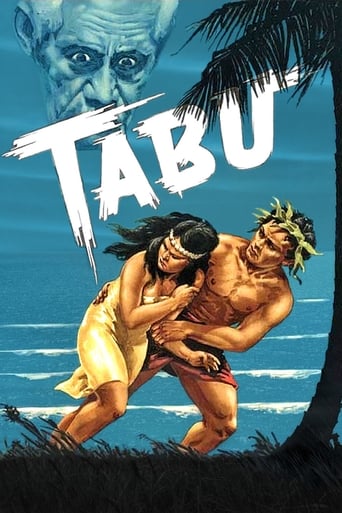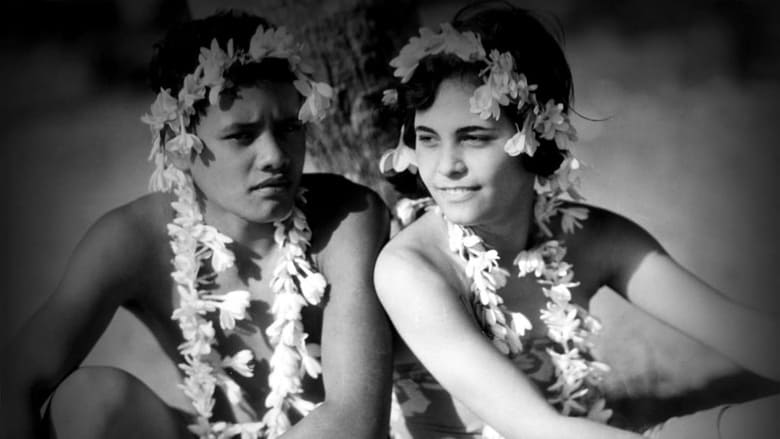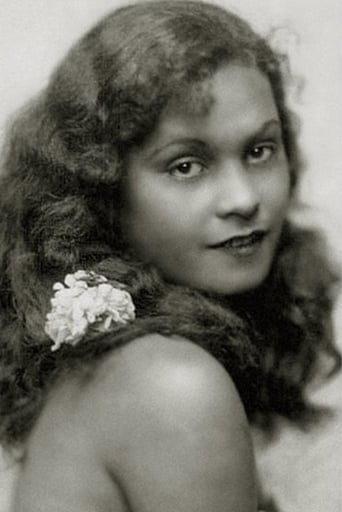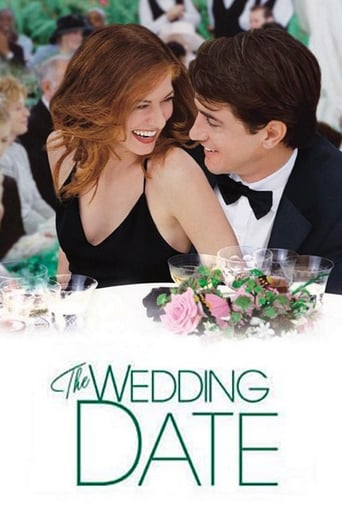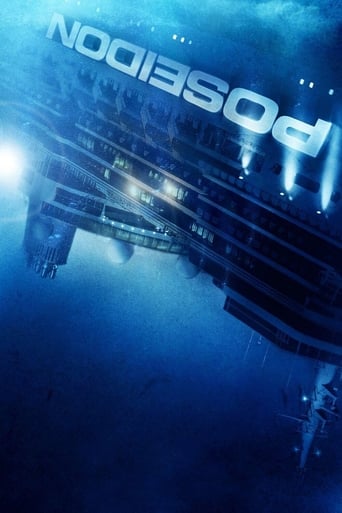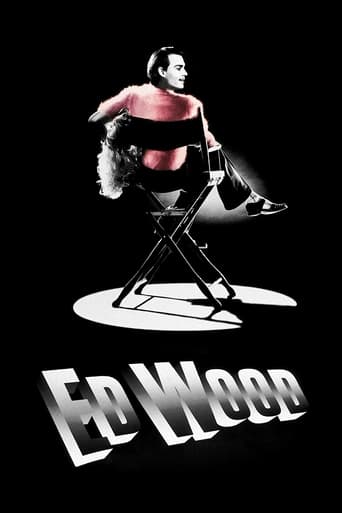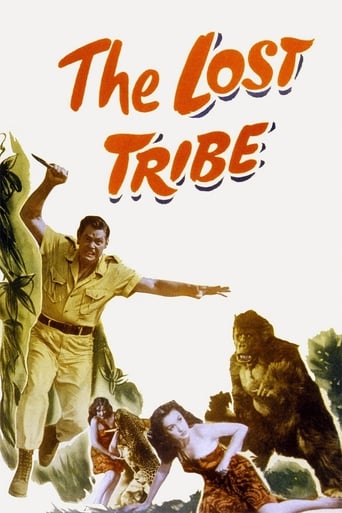Tabu (1931)
On the South Pacific island of Bora Bora, a young couple's love is threatened when the tribal chief declares the girl a sacred virgin.
Watch Trailer
Cast
Similar titles
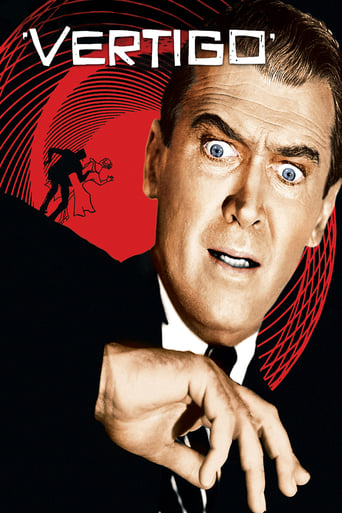
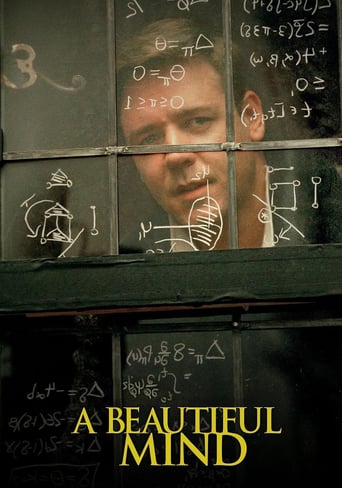
Reviews
Touches You
Best movie ever!
When a movie has you begging for it to end not even half way through it's pure crap. We've all seen this movie and this characters millions of times, nothing new in it. Don't waste your time.
This movie feels like it was made purely to piss off people who want good shows
Floyd Crosby's superb cinematography won him a richly deserved Oscar for F.W. Murnau's "Tabu". The film itself is a very simple, perhaps even simplistic. love story of the kind we have become accustomed to hearing since love stories first were told; boy loves girl, girl loves boy but they can't be together because, in this case, the girl is decreed to be a sacred virgin by the island chief.The subtitle of the film is 'A Story of the South Seas' and Murnau, together with Robert Flaherty, made the film on the island of Bora Bora. There are very few inter-titles so the film is, for the most part, a truly visual experience. The cast is made up entirely of non-professionals; the leads are native islanders and if often feels like a documentary rather than a work of fiction. Of course, it also feels as primitive as the lifestyle it portrays; sophistication is the one thing it lacks but perhaps that is not such a bad thing. Fundamentally this is a tale of innocence and of paradise lost and it has stood the test of time.
The brainchild of German genius F.W. Murnau and documentary innovator Robert J. Flaherty (of Nanook of the North (1922) fame), Tabu uses the beautiful, untouched landscape of the South Pacific and employs non- professional natives to tell the beautiful story of love found and lost, and ultimately the death of paradise. Murnau died in an automobile accident shortly before the film's premiere and, thus, was his last gift to the movie-going world. Though it doesn't come close to the iconic expressionist horror of Nosferatu (1922) or the dark, satirical humour of The Last Laugh (1924), Murnau's epitaph is a simple, yet heart- wrenching cinematic poem.The best spear-fisherman on Bora Bora is a handsome young man billed simply as The Boy (Matahi). His legendary status and unparalleled skill makes him popular amongst the islanders, and soon he has caught the eye of The Girl (Reri - who went on to star on Broadway as Anne Chevalier). They romance each other, but their affair is soon halted by the arrival of emissary The Old Warrior (Hitu), who proclaims Reri as the sacred maiden. She is 'tabu', and cannot be looked upon by any man unless he wishes the punishment of death. The couple brave storm and sea to escape, an arrive in a French-colonised island, where Matahi start work as a pearl diver. But their happiness is fleeting, and Reri is soon haunted by the image of Hitu, terrified she may have angered the gods.The plot is hardly anything new, but Floyd Crosby's Oscar-winning cinematography makes Tabu more socially aware that the film may have you believe. The subtle yet crucial involvement of the French colonists, finding amusement at Matahi's lack of understanding regarding money and material wealth, is a clear swipe at the creeping of Western civilisation. Bora Bora won't stay pure for much longer. And that adds a gravitas to Matahi and Reri's plight - not only is their romance doomed, but so are their traditions and society. It is one of the last great silent films, a reminder that sound can be an unnecessary distraction, and that picture's can sometimes genuinely speak louder than words.www.the-wrath-of-blog.blogspot.com
Director F. W. Murnau's films are always interesting and amazing to watch. However, despite some very positive press concerning this final film, I was rather disappointed. Yes, it was well-made. But, for 1931, doing the film as a silent just seemed a bit old fashioned and out of date--something Murnau NEVER was when directing such classics as NOSFERATU, THE LAST LAUGH and FAUST. These were all highly innovative films and represented the absolute cutting edge in film. But TABU on the other hand just seems stuck and behind the times. While it does have a very interesting story, excellent on-location filming and nice music and sound effects, the film looks like it was made pre-1930 because there were no voices. I am a HUGE fan of silent films, but still feel compelled to complain about this.Not a bad film, but certainly a skipable film and nowhere nearly as well-done as his other movies. Plus, in 1928 (three years before TABU) a very similar film, WHITE SHADOWS IN THE SOUTH SEAS was made and Murnau's tale is of about equal quality.
Director F.W. Murnau wisely stuck with the silent film medium he knew so well to cover this story of native islander life in the South Seas. The documentary style works very well for the first half of the movie. The landscapes are beautiful, and the daily life activities of the islanders are interesting to watch. The film loses momentum, though, when it begins to concentrate more on the narrative story of two doomed lovers. The storyline just never gets that interesting, despite being handled well by Murnau. Won an Academy Award for best cinematography, although the award probably should have been for best scenery. You can't really credit the DP for getting to shoot in such a beautiful location.
